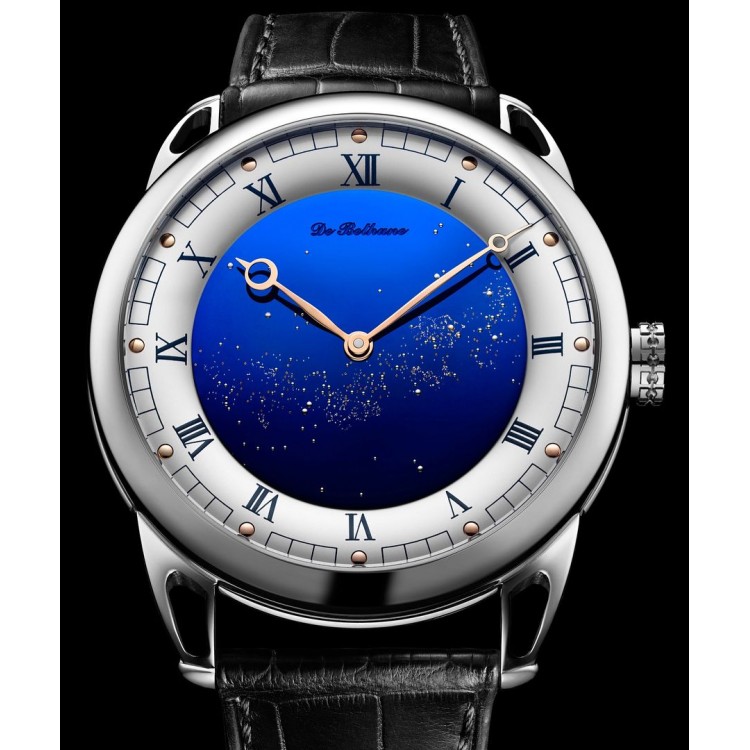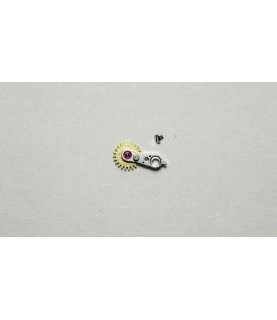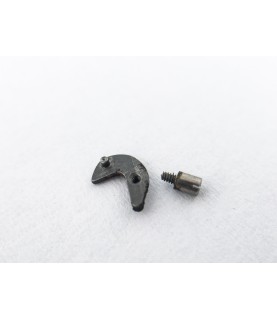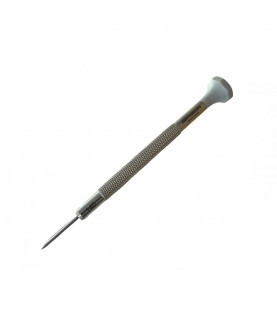De Bethune's New (Old) Look

A change in ownership at De Bethune doesn't mean a shift in the brand's ideals. For 15 years, De Bethune operated in the sweet spot for independent, small-scale watch brands. Under the ownership of David Zanetta and Denis Flageollet, the brand focused on horological development and held a torrid pace of innovation highlighted by the introduction of 26 in-house designed and produced calibers since 2003.

However, over the past few years, there were a few signs of trouble. Pierre Jacques, the CEO who helped see the brand over some of its most successful years, left the company in 2015 after a four-year stint at the helm. Since then, quiet whispers across the global horological cognoscenti grew louder and more concerned as ownership turmoil and confusion over the brand's future increased. It didn't help that other out-of-control factors such as the poor economic climate, the collapse of the Russian market thanks to the decline of the ruble, and the European debt crisis all contributed to a gradual sales depression and what De Bethune describes as the "supply and demand chain snapping".

Finally, in late October 2017, the news broke that Jacques, the former CEO, had joined with private equity investor Giovanni Perrin to put together an investment consortium and purchase a controlling stake in the young marque. The septuagenarian Zanetta, who in a previous life was a renowned watch collector and auction consultant, had already withdrawn from the day-to-day operations of De Bethune in 2016, officially left the company and ceded control of all his shares to Jacques. Flageollet, a fourth-generation watchmaker who had been the brain and primary architect behind the brand's most impressive horological milestones, retains a smaller, but still substantial, amount of shares in the ownership.

Zanetta had a larger-than-life presence at De Bethune and there's little doubt that he will be missed as the brand navigates through its next phase, but the horological heart and soul of the brand remains steady with the presence of Flageollet and the leadership of Jacques. After initially meeting Zanetta and Flageollet when the brand had just started out in 2003, Jacques knew he wanted to be a part of De Bethune in some way but didn't get a chance to join the brand until 2011. Upon leaving in 2015, after repeated disagreements with one of the shareholders about the brand's future, he still knew that he would one day return to the brand he helped lead for four years. "I always had in my mind that I wanted to come back to De Bethune and I was looking closely from the outside at what my former colleagues were doing", Jacques says. "I did everything I could do to come back to the company. You never really leave De Bethune". The newest face in the brand's ownership circle is Giovanni Perrin, a managing director at Threestones Capital Management in Luxembourg with €640 million in AuM (assets under management) throughout Europe. Jacques describes his role moving forward as mainly financial and to offer capital support.

Over the next few years, De Bethune will face the same challenges that everyone in the contemporary watchmaking industry is facing but have affected independent brands in larger, often unseen ways. Jacques understands this turmoil better than anyone.After leaving De Bethune in 2015, he became CEO of another independent brand, MCT (Manufacture Contemporaine du Temps), that is in its own precarious state, teetering on the edge of survival. "In 2011, I would say that being a new independent company you could introduce novelties like a tourbillon and you would find your customer", says Jacques. "Today, the market has changed. There are fewer players and the ones that have (survived), have changed to stay in the market and have suffered in credibility. I think the watch collectors, they do not want to buy everything. They look for one watch that really speaks to them so it's harder for more brands to stay in the market and (stay) relevant".

Where does De Bethune go from here? It has secured the precious financial backing necessary for survival, but how to reach collectors without sacrificing the core DNA? For Jacques, Flageollet and De Bethune, the answer is simple. Keep focusing on what made De Bethune a celebrated independent brand in the first place: innovation and small-scale production.
"We want to stay small at around 200 units per year", says Jacques "We will grow in terms of innovation. New calibers, new complications, new technology, more patents. We already have 26 in-house calibers and will continue to grow in that form. We aren't planning on reviewing prices at this point".
This strategy is simple but increasingly uncommon in today's market. However, it makes sense for De Bethune. The amount of watches it produces is so small and the amount of horological invention found in each new model is so high, that the premium price the watches command are fair. Despite that, a quick look at the watch industry shows the opposite of Jacques's approach. Many brands, both large and small, are making critical decisions to focus production either completely upmarket or completely downmarket and others are focused on a total reinvention of who they are.

De Bethune's decision here, with firm financial backing and most of the original team in place, is key to its survival. No one knows what made De Bethune a success more so than Jacques and Flageollet. The market has changed, but the deep-pocketed, loyal followers of De Bethune haven't. If an independent brand is to survive in the field of contemporary horology, it won't weather the storm by remaining stagnant, which has always been the opposite of De Bethune's modus operandi. It's ironic then, that although the lifeblood of De Bethune is its inventiveness, its future success is dependent on staying the course.

Jacques knows that diverting from the original formula would alienate its foundation and, after successful showings at SIHH and during Baselworld this year, it seems like the plan is in motion. Five new models made their debut during the Switzerland shows: the updated DB28 Steel Wheels, the customizable DB25 Starry Varius, the colorful DB28 Grand Sport Blue, the improved DB27 Titan Hawk V2 and the DB25 Tourbillon Milky Way. All five feel like classic De Bethune and Jacques says that the general feedback has been extremely positive.

During Baselworld, in a move that seems particularly on brand for the new "business as usual" mentality, De Bethune handed out a brand-centric newspaper that described the new models, featured an interview with Flageollet, and talked about Jacques's vision. There was one quote from Jacques that stuch out as particularly prescient. "My worst nightmare? A commercially successful model that would make no horological sense."



